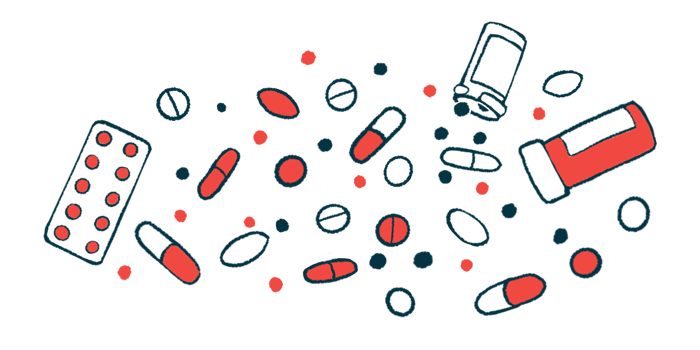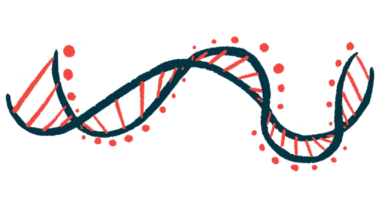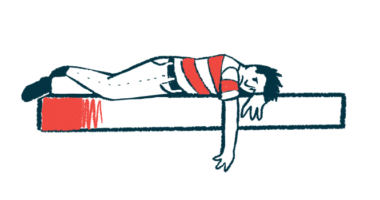Aripiprazole Intensifies Behavioral Issues in Six PWS Cases, Study Shows
When medicine's off-label use was reduced, challenging symptoms eased for all

Aripiprazole, a treatment used for schizophrenia and other brain disorders, may potentially worsen behavioral problems in young people with Prader-Willi syndrome (PWS), according to a small study.
Symptoms such as aggressiveness, irritability, and impulsiveness intensified in six people with PWS who received aripiprazole, but eased once they stopped taking the medication.
The study results highlight the risk of agitation and disruptive behaviors associated with this treatment in PWS.
“Our hypothesis-generating findings, though not providing evidence of causation, raise concerns about potential harmful effects related to high-risk behaviors involving a relatively common treatment used in clinical practice with limited evidence,” the scientists wrote.
The study, “Possible agitation and disruptive behavioural with aripiprazole in prader-willi syndrome: Insights from a case series,” was published in the journal Psychiatry Research Case Reports.
PWS is characterized by symptoms including slow growth, low muscle tone, and a constant sense of hunger. Behavioral problems, such as stubbornness, temper outbursts, and obsessive thoughts are also well known in children with PWS.
Compared with other antipsychotics, aripiprazole (sold as Abilify) is associated with a lower rate of weight gain. As such, it is considered a promising treatment for PWS given the high prevalence of obesity among people with this disease.
Yet although little is known about aripiprazole’s safety and efficacy in PWS, this medication is widely used off-label in this patient population.
“To the best of our knowledge only two isolated case reports of its use have been documented to date,” the scientists noted.
In this study, the Argentina-based research team sought to evaluate the use of aripiprazole for the treatment of disruptive behavioral episodes in six patients with PWS and psychosis — thoughts and perceptions that may make it difficult to understand what is real and what’s not — or behavior disorders.
Three patients received aripiprazole to manage their behavior and three for the treatment of psychosis or bipolar spectrum disorder (generally marked by extreme vacillations in mood).
All patients underwent regular transdisciplinary therapy (RTT), including clinical medicine, nutrition, psychiatry, speech therapy, and other areas. It is based on the needs and resources of the patients and their families, according to frequency that ranges from weekly to monthly.
The disruptive behavior scale (DBS) was used to quantify disruptive behavioral risk based on eight disruptive behavior indicators. A total of zero to seven points was considered a minor behavioral risk, eight to 16 points was moderate, and 17 or more points was severe.
The case studies
The first case was of a 19-year-old man who had disruptive behaviors (DBS score 29) and had been receiving 2.5 mg/day of aripiprazole. After six months of RTT and no improvements, his dose was increased first to 5 mg/day and then to 10 mg/day. Impulsive behaviors continued, which led the doctors to boost the dose once more to 20 mg/day. Following impulsive and violent outbursts, progressive withdrawal was decided, and his behavior improved considerably (DBS score 12).
Likewise, a 12-year-old girl with a diagnosis of bipolar spectrum disorder and severe behavior disorder (DBS 20) had been receiving treatment with aripiprazole (5 mg/day). Her score dropped to DBS 4 when she stopped taking aripiprazole.
An 11-year-old girl, the only patient without a genetic test to confirm PWS diagnosis but with clinical symptoms of the disease, had a severe behavioral risk (DBS 25) and was taking 2.5 mg/day of aripiprazole. Increasing the dose to 5 mg/day worsened her symptoms of irritability, nervousness, anxiety, insomnia, and self-harm behaviors due to skin picking. After withdrawal, all her symptoms reduced (DBS 10).
An 18-year-old boy with a severe disruptive behavior risk score (DBS 28) had been taking aripiprazole since the age of 13. His behavioral problems continued despite starting RTT and increasing his dose to 15 mg/day. Treatment was discontinued due to the family’s complicated socioeconomic conditions.
The fifth case was of a 17-year-old boy who had a high disruptive behavior risk score (DBS 27). RTT and a reduction in his aripiprazole dose from 20 to 10 mg/day led to significant improvements in his behavior. After withdrawal his DBS score dropped to 6.
Finally, the last patient was a 12-year-old boy who received aripiprazole at a maximum dose of 5 mg/day; he had a DBS score of 29. He became distressed, with disorganized behavior and thoughts, anxiety, discomfort, and tendency to experience strong and variable emotions.
His doctors decided to reduce his dose to 2.5 mg/day one year after RTT start. Fifteen days later his behavior improved, which prompted the team to withdraw the medication. His score reached DBS 19.
“In the largest case series to date exploring the effect of aripiprazole in PWS, we identified that patients under treatment with aripiprazole were prone to worsening and disruptive behaviours,” the authors concluded.
Additional studies are needed to confirm these findings and to determine if and how aripiprazole affects patients with different genetic classes of PWS.







